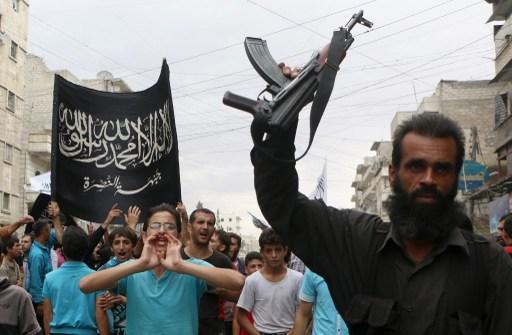The Islamic State (IS) is weakened, but a resurgence is still possible if the United States leaves Iraq, US General Alexus Grynkewich, said earlier in the week.
The fact that IS has failed to take advantage of the events in Iraq during these last three months shows that the jihadist movement is structurally weakened, General Grynkewich stated during a Pentagon press conference.
The anti-IS coalition allies have sought in recent months to assess the position of the jihadist movement, which was driven from its geographic "caliphate" a year ago, the military official said.
The question was "whether the IS is engaged in a sort of strategic patience, waiting for an opportunity that it could exploit, or if under too much pressure and lacking capacities," he said.
The events in Iraq have "greatly diverted attention from the IS" and helped the coalition to "refine" its conclusions: “IS is rather more deprived of capacities than being strategically patient.”
However, the group "undoubtedly remains a threat," the American General added. "It can potentially re-emerge if we lower the pressure for too long."
"In the short term, as we decrease some of our activities in Iraq and Syria, I do not think there would be any immediate resurgence threat. But the more we lower the pressure, the more the threat grows,” he notes, stressing that the Iraqi government has "as much interest as we do" that the coalition maintains the pressure.
Two days after the death of influential Iranian General Qassem Soleimani killed by a US drone in Baghdad on 3 January, the Iraqi parliament voted for the withdrawal of foreign forces from Iraq, including 5,200 US soldiers deployed on its territory.
Coalition forces have been conspicuously reducing their operations in Iraq since, even though cooperation with the Iraqi army continues discreetly, according to several US military sources.
On Wednesday, US President Donald Trump met with his Iraqi counterpart Barham Saleh in Davod and agreed on the need to maintain military cooperation, but no details were given on the framework of the cooperation.
The Brussels Times

